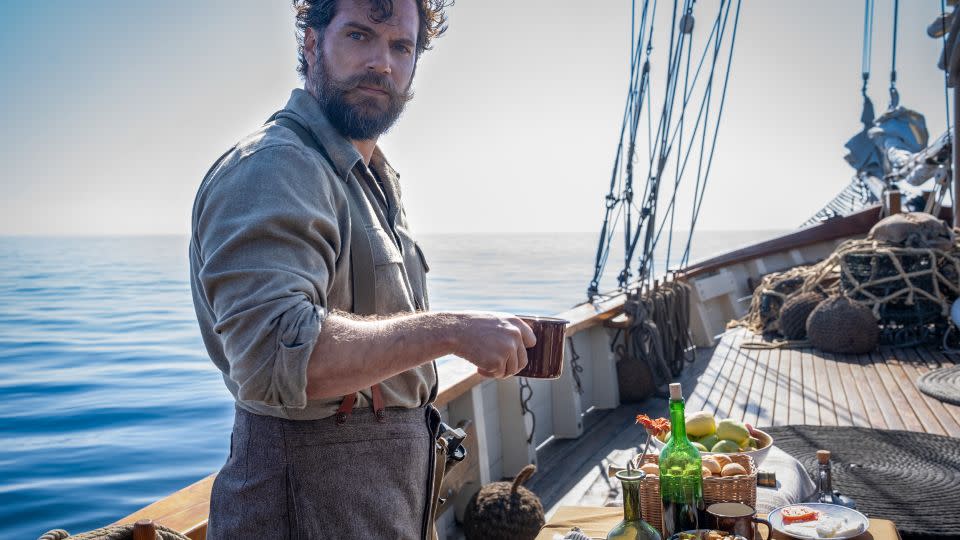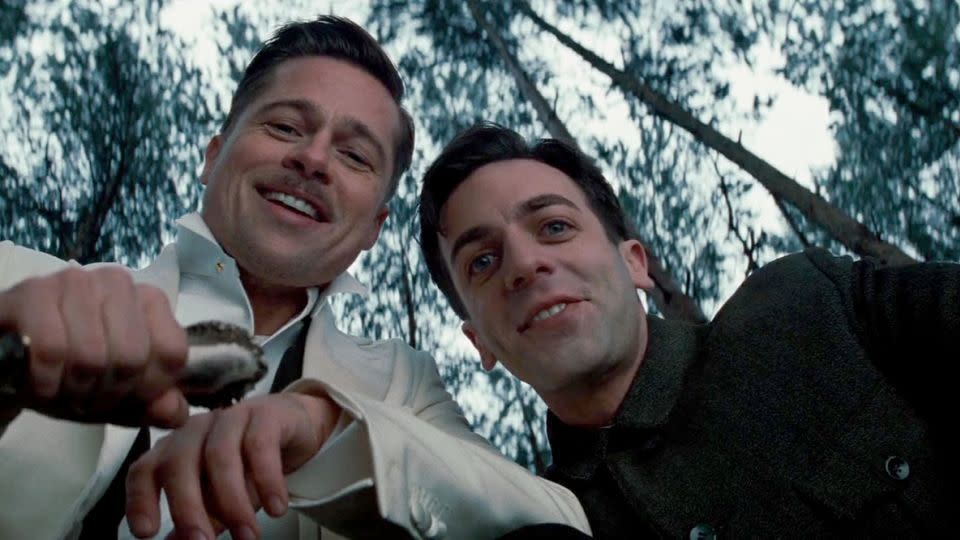Opinion: ‘The Ministry of Ungentlemanly Warfare’ has a surprising secret
Editor’s Note: Noah Berlatsky (@nberlat) is a freelance writer in Chicago. The views expressed here are his own. View more opinion on CNN.
War films often try to overwhelm you with authenticity. Movies like “Saving Private Ryan,” (1998), “Dunkirk,” (2017) or this year’s “Civil War” saturate viewers with the realism of their combat sequences and the gritty power of simulated trauma. That’s why war movies are often treated as serious and important: They offer what seems to be unique, powerful access to a rare but important experience. Watch “Apocalypse Now” (1979), “Full Metal Jacket” (1987) or “Platoon” (1986) and you should know what war really means.

Guy Ritchie’s “The Ministry of Ungentlemanly Warfare” claims to be based on true events; it’s modeled on the 1942 World War II Operation Postmaster, in which a British team seized enemy ships in the Spanish harbor of Fernando Po. But even 10 minutes in, the connection to the real experience of war is tenuous.
The film is a rip-roaring, goofy adventure yarn. And while I wouldn’t necessarily say that makes this a better movie than “Apocalypse Now,” there is something refreshing, even honest, about Ritchie’s willingness to toss pretension overboard, and let a fictional film own its fictional inauthenticity.
“Ungentlemanly Warfare” features a disreputable band of riff raff brought together for a super-secret mission. That mission is to sink a key German vessel which resupplies German U-boats. The ship is in neutral waters off Fernando Po, and British Prime Minister Winston Churchill (a frantically mugging Rory Kinnear) needs a team he can disavow. He turns to Gus March-Phillips (Henry Cavill in masses of insouciant facial hair) as a leader with subordinates including titanically cheerful Scandinavian murder machine Anders Lassen (Alan Ritchson) and the brave, elegantly sensuous, undercover operative Marjorie Stewart (Eiza González.)
The setting comes with ready-made villains in the Nazis and patriotic resonance, but the plot machinations barely matter; they’re merely an excuse to show our heroes making dry quips about cricket and their own indomitability as they shoot fascists in the head, carve out their hearts and set off extremely large explosions.
The protagonists are so dashing, hypercompetent and destined for victory that there isn’t even really any suspense. “The Guns of Navarone” (1961) — an obvious precursor — was at least willing to acknowledge that in war, sometimes good people die. Ritchie makes no such concessions to authenticity in “Ungentlemanly Warfare.”

You could argue that this kind of glib triumphalism ill prepares people for the realities of war, or for the reality of fascism. And, sure, you’d have a point. Our rag-tag band has no doubts as they swagger to victory; they literally giggle when Nazis threaten them and chat nonchalantly while being tortured by electroshock.
Decency comes as easily as courage: Only the Nazis are prejudiced, while the good guys are untouched by the racism and sexism endemic in their era (as, for that matter, in ours). Churchill’s history of colonial atrocities is of course never mentioned. Fighting fascism in others, and fascist sympathies on one’s own side, looks easy. Which, as we know from our current threats to democracy, is not the case.
Yet the movie is so unremittingly silly that it’s hard to imagine anyone taking it seriously as a blueprint for anything, let alone fascist-fighting. This deliberate unreality seems inspired by Quentin Tarantino’s 2009 “Inglourious Basterds,” a film in which Hitler is killed in 1944, a year before the war actually ended, saving immeasurable suffering and misery. He’s assassinated by a group of awesome Jewish fighters and plotters, providing a satisfying revenge arc and a violent orgy of poetic justice.
“Inglourious Basterds” is a tour de force of wish fulfillment; it’s not just satisfying, but painfully poignant, because you know, and you know Tarantino knows, that the war did not happen like that. The (relatively) easy victory underlines the truth that the cost of fighting fascism is higher than can possibly be conveyed in a revenge fantasy or movie.

“Ungentlemanly Warfare” is by no means that smart or that powerful. But its cheerful pulp genre dreamworld in which the right guys win still has a knowing, innocent charm. At least its tongue-in-cheek approach means that no one is likely to come away from it thinking that a muscley invulnerable Danish dude really won World War II single-handed with a bow and arrow.
When talented directors, actors, special effects crews and camera teams put all of their resources into convincing audiences that what they’re seeing on screen is What War Is Really Like, they can make even sophisticated viewers feel like they have been given a glimpse of something authentic, even when they’ve been fed a myth or an outright lie.
How many people who watched “Apocalypse Now” think that Vietnam during the war was a barely developed jungle, rather than a crowded and urbanized society? How many people who watched “Full Metal Jacket” took the hyper sexualization of Asian women as gospel?
Even when a war movie doesn’t actively mislead you, the promise of being privy to an unvarnished, authentic and extreme experience can be seductive. Violent imagery of war doesn’t necessarily lead people to fear war; sometimes it fascinates, or makes them breathe “hard core,” as one character famously does in the climactic moments of “Full Metal Jacket.”
If you set war up as the realest thing, many people (and especially many young men) will want to go to war so they can say that they experienced the most real thing. That was one of the ways Hitler sought to justify his endless militarism to the Germans. Mankind has grown great in eternal war,” he wrote. “It would decay in eternal peace.”
Compared to that kind of cult of authentic war, “Ungentlemanly Warfare” feels fairly harmless, and not in a bad way. The combat sequences are efficient and anodyne; they make no effort to overpower you.
It’s a fun bauble to watch, not an important window into a vital experience that you should, or need to, live out yourself. I wouldn’t want all movies to be this unambitious, but there is something to be said for a movie that knows it’s a movie, not an authentic experience of war.
For more CNN news and newsletters create an account at CNN.com

 Yahoo Lifestyle
Yahoo Lifestyle 
